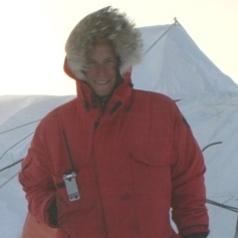
Joel Pedro
Palaeoclimatologist, Australian Antarctic Division
My research exploits high temporal resolution ice cores from Antarctica and Greenland to address questions concerning climate forcings, variability and feedbacks over a range of timescales: (i) sub-annual to decadal-scale environmental influences on the 10Be solar activity proxy; (ii) centennial to millennial-scale internal climate variability; and (iii) the phase relationship between Antarctic temperature and atmospheric CO2 during the last deglaciation.
Less ![]()
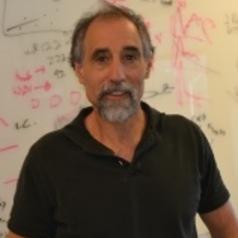
Joel Richter
Professor of Neuroscience, UMass Chan Medical School
We study the molecular biology of mRNA translational control by cytoplasmic polyadenylation and how this process influences interesting biological phenomena including early animal development, cellular senescence/growth control, neuron synaptic plasticity, learning, and memory, and neurologic disease.
Less ![]()
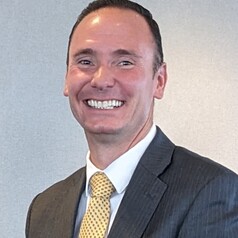
Joel Vallett
Assistant Professor of Public Administration, Southern Utah University
I am an Assistant Professor at Southern Utah University (SUU) and teach in the Master of Public Administration (MPA) program. My research focuses on policy incentives as a driving force for policy implementation, success, and ethical decision-making. I have been fortunate to publish articles in policy journals such as the Policy Studies Journal and Administration and Society. While I enjoy my research, my true passion lies in incorporating applied learning in the classroom. My goal is to cultivate dedicated public administrators equipped to tackle life's challenges.
Less ![]()
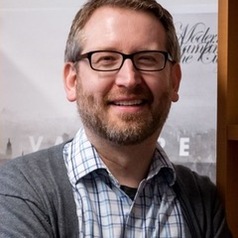
Joel Heng Hartse
Senior Lecturer, Faculty of Education, Simon Fraser University
Dr. Joel Heng Hartse is a Senior Lecturer in the Faculty of Education at Simon Fraser University courses. His research and teaching focuses on the teaching of language (especially writing) in the context of the internationalization of higher education, and his academic work has appeared in the TESL Canada Journal, Journal of Second Language Writing, Asian Englishes, Composition Studies, the Journal of English for Research Publication Purposes. Across the Disciplines, and English Today. His recent books include Dancing about Architecture is a Reasonable Thing to Do (Cascade, 2022), and TL;DR: A Very Brief Guide to Reading & Writing in University (On Campus/UBC Press, 2023. He is president (2022-2024) of the Canadian Association for the Study of Discourse and Writing, and former co-editor of the journal Discourse and Writing/Rédactologie.
Less ![]()
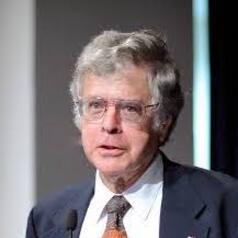
Joel S. Levine
Research Professor, Department of Applied Science, William & Mary
From 1970 to 2011, Dr. Levine was a Senior Research Scientist, Science Directorate, at the NASA Langley Research Center in Hampton, VA. From 2007-2010 he was a Program Scientist for the Mars Scout Program and Mars Exploration Program at the NASA Headquarters in Washington, D.C. From 1990-2011 he was an Adjunct Professor of Atmospheric Science in the Department of Applied Science at William and Mary in Williamsburg, VA. From 2011 to present he has been a Research Professor in the Department of Applied Science at William and Mary in Williamsburg, VA.
Less ![]()
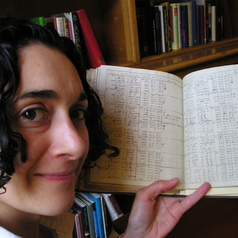
Joelle Gergis
ARC DECRA Climate Research Fellow, School of Earth Sciences, University of Melbourne
Dr Joëlle Gergis is a climate research scientist and writer working with Professor David Karoly at the University of Melbourne, Australia. Her research focuses on reconstructing Southern Hemisphere climate variability over the past 200–1,000 years using annually-resolved tree rings, corals, ice cores and historical records.
From 2009–2012 she led the Australian Research Council Linkage funded South-Eastern Australian Recent Climate History (SEARCH) project; a landmark initiative, spanning the sciences and the humanities to reconstruct the region’s climate variability from first European settlement in 1788.
Since 2009 Joëlle has led the international Past Global Changes (PAGES) working group on Australasian climate variability of the past 2,000 years (Aus2K). This involved coordinating the development of the region’s 1,000 year temperature reconstruction for input into the Intergovernmental Panel on Climate Change (IPCC) Fifth Assessment Report.
Joëlle received her PhD in high-resolution palaeoclimatology from the University of New South Wales in 2006. Since 2003 she has authored over 60 articles on climate variability and change publications. Her work has been covered on national and international television (SBS World News, ABC, TVNZ), radio (ABC Radio National, AM, Bush Telegraph, Science Show, RRR) and print media (The Guardian, The Australian, The Age, Sydney Morning Herald and Australian Geographic).
In 2007 she was one of three national finalists for the 2007 Eureka Prize for Young Leaders in Environmental Issues and Climate Change, and was one of nineteen Wentworth Group of Concerned Scientists’ Science Leaders Scholarship recipients selected nationwide. Professor Tim Flannery, the 2007 Australian of the Year, was one of her mentors during the program aimed at training outstanding young scientists to help bridge the communication gap between science and public policy.
In 2012 Joëlle was awarded an Australian Research Council (ARC) Discovery Early Career Researcher Award (DECRA) fellowship, and her team won the 2014 Eureka Prize for Excellence in Interdisciplinary Scientific Research – informally known as the ‘Oscars of Australian Science’. Most recently Joëlle was awarded the 2015 Dean’s Award for Excellence in Research in the Faculty of Science at the University of Melbourne.
Less ![]()

Joelle Grogan
Head of Research, Senior Researcher, UK in a Changing Europe, King's College London
Joelle is a Head of Research and a Senior Researcher at UK in a Changing Europe. She is an expert in the rule of law, working in the fields of EU law, and UK public law. She is also a Senior Research Fellow at the CEU Democracy Institute in Budapest, and a Visiting Senior Research Fellow at the UCD Sutherland School of Law in Dublin. She is a legal academic with expertise in EU and UK law.
Less ![]()

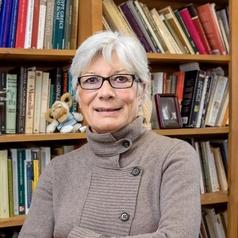
Joelle Rollo-Koster
Professor of Medieval History, University of Rhode Island
Socio-cultural historian of the late middle ages with an emphasis on the Avignon papacy and the Great Western Schism.
Less ![]()


Joep Konings
Dean of the Graduate School of Business, Nazarbayev University
Joep Konings is a Belgian economist. He is director of research and full professor at the Nazarbayev University Graduate School of Business in Kazakhstan (strategic partner with the Fuqua School of Business at Duke University), director of the Flemish Institute for Economics and Science (VIVES) at KU Leuven and research fellow of the Center for Economic Policy Research in London. He is a former advisor in economics for the Barroso cabinet in the European Commission, in the Bureau of European Policy Advisers.
Less ![]()
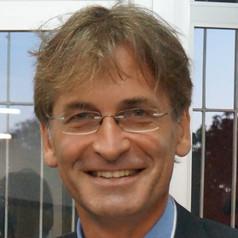
Joerg Bibow
Professor of Economics, Skidmore College
I grew up in Hamburg, northern Germany, and have studied and worked in six countries, including South Africa, Italy, Switzerland, and the United Kingdom. Before and during my studies of economics at three different universities I gathered a number of years of work experience in the financial services industry (insurance, pension fund, and banking).
Degrees
B. Com. Hons. (Econ), University of the Witwatersrand, South Africa 1991
Diplom-Volkswirt, University of Hamburg, Germany 1992
M. Phil. (Econ), University of Cambridge, United Kingdom 1993
Ph. D. (Econ), University of Cambridge, United Kingdom 1996
Habilitation, University of Hamburg, Germany 2004
Previous teaching positions
Undergraduate supervisor, various Cambridge Colleges, U.K. 1993-96
Temporary Lecturer, University of Cambridge, U.K. 1995-96
Assistant Professor, University of Hamburg, Germany 1996-2004
Guest Professor, University of Rome "La Sapienza", Italy 2003
Assistant Professor, Franklin College, Switzerland 2004-2006
Less ![]()

Joey Crozier
PhD Candidate, Secrecy, Propaganda and Intelligence Gathering, Aberystwyth University
PhD thesis title: ‘Secrecy, Propaganda, and Intelligence Gathering: The World of James Johnston and the Glorious Revolution (1687-97).'
(Formerly - Gossip, Print and Espionage: The Glorious Revolution in the British Atlantic World)
The story of the 1688 Glorious Revolution is an ancient one. Nevertheless, the role of Scottish intelligencers in service of the House of Orange throughout the revolution have been largely overlooked. This project aims to conduct an original investigation into intelligence gathering during the era of the Glorious Revolution. Indeed, it sets out to interrogate how influential intelligence gatherers were during the late seventeenth century through the lens of one extraordinary intelligence operative, James Johnston (1655-1737). In examining the role of Johnston during the revolution, I hope to reveal more about the mechanics of clandestine networks; the sorts of intelligence that contributed to political propaganda; and the conspirators who closely assisted Johnston in his service to William of Orange.
Less ![]()
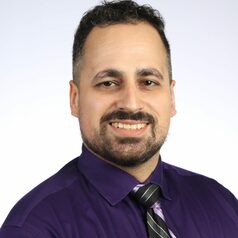
Joey Rodriguez
Assistant Professor of Physics and Astronomy, Michigan State University
I am currently an assistant professor in the Department of Physics and Astronomy at Michigan State University, primarily working on NASA Transiting Exoplanet Survey Satellite (TESS) mission. My research focuses on understanding how planets form and evolve by studying circumstellar disks and exoplanets. I received my PhD in Physics from the Department of Physics and Astronomy at Vanderbilt University in 2016. In 2010, I completed my Bachelors of Science in Astrophysics and Psychology at Rutgers University and I received my Master of Science in Applied and Engineering Physics from George Mason University in 2012.
Less ![]()

Johan Flygare
Associate Senior Lecturer, Division of Molecular Medicine and Gene Therapy, Lund University
Red blood cell and gene therapy researcher at Lund Stem Cell Center, Lund University, Sweden.
Less ![]()

Johan Lundberg
Adjunct Professor, Psychiatry, Karolinska Institutet
Johan Lundberg is a psychiatrist at the Northern Stockholm Psychiatry Clinic and adjunct professor of psychiatry at Karolinska Institutet. His main focus is on mood disorders and his research include pharmacoepidemiology, randomised controlled trials and in vivo studies in man on the mechanism of action of antidepressant treatments like CBT, ECT, ketamine and psilocybin.
Less ![]()
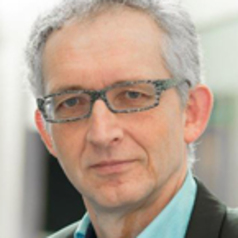
Johan Schot
Director of Science Policy Research Unit, University of Sussex
Professor Johan Schot joined the University of Sussex as the Director of SPRU – Science Policy Research Unit - in January 2014. He is a Professor in the History of Technology and Sustainability Transitions Studies. His research is wide ranging but has always focused on integrating social science and historical perspectives for a better understanding of the nature and governance of radical socio-technical change. Prior to coming to Sussex, he held academic posts at the Eindhoven University of Technology and University of Twente, Netherlands. Under Johan’s directorship, SPRU is embarking on an ambitious, new strategy to expand and build on its impressive track record across research, teaching, impact and engagement. The strategy, designed in the lead-up to the 50th anniversary in 2016, will draw on SPRU’s extensive activities and capture the best thinking within and beyond SPRU.
As part of this new strategy, Johan and SPRU colleagues aim to develop a new innovation theory which will address the current crisis of capitalism and a number of key challenges our world is facing: inequality, climate change, the democratic deficit, and the need to develop new system of provision for security, food, water, energy, healthcare and mobility. Necessarily the program will theorize the nature, scale and scope of long-term transformative change, and ways of providing directionality to economic growth. The new theory will synthesize insights from economics of innovation, science & technology studies, history of technology, and other relevant fields.
Johan is in an excellent position to nurture the development of such a programme in SPRU. His work has always been at the junction of various academic fields and disciplines. In 2009, Johan Schot was elected to the Royal Netherlands Academy of Arts and Sciences (KNAW) for the genuine interdisciplinarity of his work. He has been heavily involved in the development of innovative new concepts and interpretations, and has co-produced highly cited and influential academic contributions. In 2002 he was awarded a VICI grant by the Netherlands Organization for Scientific Research (NWO). This is a personal award for top-scholars comparable with the ERC Advance Investigator Grant.
His ability to create and pioneer large scale, creative, academic collaborations has helped to transform policy practices, broaden academic understandings, and develop new innovative outputs in the form of programmes, book series and networks.
Johan has always been keen to support and invest in PhD students and early career scholars. He was the founder and director of several doctoral programmes as well as a string of summer schools and master classes. A passionate teacher, Johan has been heavily involved in designing and developing undergraduate and graduate programmes that incorporate social science and humanities perspectives into the education of future business leaders, policy makers, engineers and scientist.
Less ![]()
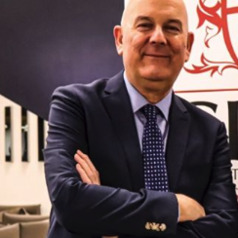
Johan Verhoeven
I am a professor of experimental phonetics at City, University of London. My research focuses on understand the process of human speech production and the distribution of speech sounds in the languages of the world. My research has been funded by a.o. the Leverhulme Foundation for studying asymmetries in the articulation of the English speech sounds.
Less ![]()
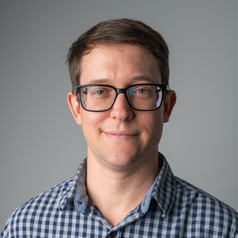
Johan Viljoen
Postdoctoral Researcher in Biological Oceanography, University of Exeter
I am a researcher in Biological Oceanography and Marine Biogeochemistry, with a particular interest in the interactions between marine phytoplankton and nutrients. My current work focuses on how phytoplankton dynamics are changing in response to ocean warming, and how this might affect global biogeochemical cycles.
I completed my PhD at Stellenbosch University, South Africa, where I studied the role of micronutrients in shaping phytoplankton communities in the Southern Ocean. I gained extensive sea-going research experience during multiple expeditions to the Southern Ocean.
Currently, I am a Postdoctoral Research Associate at the University of Exeter and a BioGeoSCAPES Fellow. I contribute to the UKRI-funded Phytoplankton Response to Climate Change (PRIME) project, studying how climate change impacts phytoplankton communities and broader marine biogeochemistry.
Less ![]()
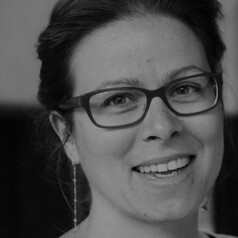
Johanna Berneron
Toxicologue reglementaire, Agence nationale de sécurité sanitaire de l’alimentation, de l’environnement et du travail (Anses)
Less ![]()
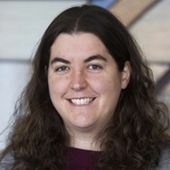
Johanna Mathieu
Associate Professor of Electrical Engineering & Computer Science, University of Michigan
Less ![]()
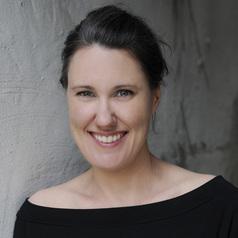
Johanna Peetz
Professor in Psychology, Carleton University
Dr. Johanna Peetz is a professor at the Department of Psychology at Carleton University. Her research includes a range of topics broadly connected to time perception, financial decisions, and interpersonal relationships. Across different topics her research aims to foster better everyday decisions and goal-consistent actions.
Less ![]()
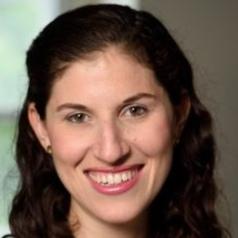
Johanna Richlin
Assistant Professor of Anthropology, University of Maine
I specialize in the anthropology of religion and psychological and medical anthropology, with expertise in evangelical Christianity in the U.S. and Brazil, U.S. migration, studies of affect and emotion, and gender, health and society.
My first research project explored the impact of U.S. migration experience on the varied religious beliefs, choices, and sentiments of Brazilian migrants in the Washington, D.C. metropolitan region. From this body of research, I published a research article in Current Anthropology, entitled “The Affective Therapeutics of Migrant Faith: Evangelical Christianity among Brazilians in Greater Washington, D.C” (2019), and completed my first book, In the Hands of God: How Evangelical Belonging Transforms Migrant Experience In the United States (Princeton University Press, 2022). My research was reviewed in The Economist (“Religion and Vulnerability: Why Charismatic Christianity is Popular with Migrants” (2019)) and featured on The Chris Voss Show (2022).
My current research investigates U.S. healthcare experience and vaccine beliefs, behaviors, and solidarities among diverse demographics. The first publication related to this project, “From Iatrogenesis to Vaccine Skepticism: U.S. Mothers’ Negative Vaccine Perceptions and Non-vaccination Practices as Reverberations of Medical Harm,” was published last spring (2023) in Medical Anthropology Quarterly.
Less ![]()

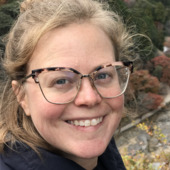
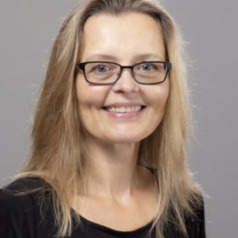
Jóhanna Kristín Birnir
Professor Comparative Politics, University of Maryland
Jóhanna Kristín Birnir is a Professor in the department of Government and Politics and the director of GVPT Global Learning. Jóhanna studies the effect of identity (ethnicity, religion, gender) on contentious political outcomes (elections and violence), and has done extensive fieldwork in the Andes, South-East Europe and Indonesia. Jóhanna´s first book "Ethnic Electoral Politics" (Cambridge University Press) examines the relationship between political access and minority strategic choice of peaceful electoral participation, protest or violence against the state. Her most recent book (with Nil Satana) "Alternatives in Mobilization: Ethnicity, Religion and Political Conflict" (Cambridge University Press in 2022), examines the relationship between identity (ethnicity and religion) and minority peaceful and violent political mobilization. Jóhanna´s articles on identity and politics are published in numerous academic journals including the American Political Science Review, American Journal of Political Science, Comparative Political Studies, Journal of Peace Research, Journal of Conflict Resolution, Party Politics, Latin American Research Review , Studies in Comparative International Development, and Journal of Global Security Studies. Her research has been supported by the National Science Foundation, The National Consortium for the Study of Terrorism and Responses to Terrorism, Folke Bernadotte Academy and the Global Religion Research Initiative among others.
Less ![]()
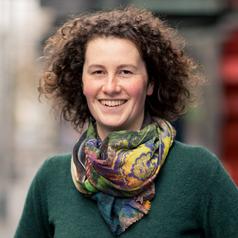
Johanne Trippas
Research fellow, RMIT University
Johanne Trippas is a Vice-Chancellor’s Research Fellow at RMIT University, specializing in intelligent systems, focusing on digital assistants and conversational information seeking. Her research aims to enhance information accessibility through conversational systems, interactive information retrieval, and
human-computer interaction.
Less ![]()
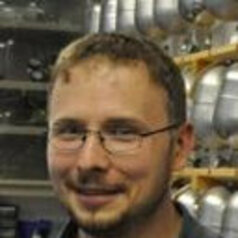
Johannes Laube
Honorary Lecturer, Centre for Ocean and Atmospheric Sciences, University of East Anglia
Johannes C. Laube works at the Institute for Energy and Climate 7: Stratosphere, Forschungzentrum Jülich, Germany and is also an Honorary Lecturer at the Centre for Ocean and Atmospheric Sciences, University of East Anglia, UK.
Laube's research spans meteorology, environmental chemistry and analytical chemistry.
Less ![]()
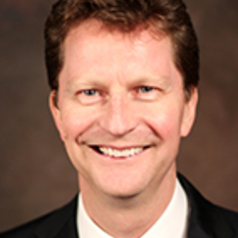
John Affleck
John Affleck, a journalist and leader at The Associated Press who has served most recently as sports enterprise editor/interim deputy sports editor for the news organization that produces content seen by half the world’s population on a given day, was named the Knight Chair in Sports Journalism and Society at Penn State on Aug. 6, 2013.
Affleck served as a reporter, editor and national manager at the AP, working regularly with all of the organization’s major editorial departments during his 22-year career. In his most recent role before joining the University faculty, he helped manage day-to-day operations for the roughly 70-member domestic sports team. He directed coverage of the Lance Armstrong saga, coordinated efforts with the news department as the Jerry Sandusky case unfolded and guided the U.S. sports report last summer when the AP’s sports team was split between Olympic and non-Olympic coverage.
Affleck has directed coverage of college football and the last five Bowl Championship Series national title games. He also oversaw the wire service’s 2013 Final Four coverage and was a key editor at the World Cup in South Africa. He also represented the AP at the 2012 Associated Press Sports Editors convention and at APSE’s sessions this year with commissioners from major pro sports leagues. He has also covered the Super Bowl and the World Series.
Reporters and projects under Affleck’s direct supervision have been honored in dozens of regional and national contests, and have earned awards from a wide array of groups, including the nation’s education writers, religion reporters and the lesbian and gay journalists association. Work under his guidance has captured the AP’s top internal prizes for news enterprise, sports enterprise and sports features.
As the Knight Chair, Affleck will serve as director of the John Curley Center for Sports Journalism, housed in the College of Communications. The Curley Center, a first-of-its-kind academic endeavor in U.S. higher education when founded in 2003, explores issues and trends in sports journalism through instruction, programming and research.
As Affleck transitions to higher education, he brings a lifelong passion for education and sports journalism to the position. He worked for the AP in Albany, N.Y., Buffalo, N.Y., and Cleveland before moving to the organization’s main office in New York. Along with his leadership and mentoring young reporters, Affleck also has earned writing awards himself. He brings an appreciation of journalism fundamentals and an understanding of the need for innovation in the changing multimedia journalism environment to the position.
As director of the Center, Affleck will: teach several courses, including sports writing; serve as a voice about sports journalism issues and trends; and coordinate the Center’s programming, which includes a variety of partnerships at Penn State and off campus for guest lectures and special events. Guests for Center programming have included Christine Brennan, Bob Costas, John Feinstein, Brent Musburger, Bob Ryan and more.
Affleck grew up in Syracuse, N.Y., and has been a competitive runner for most of his life, once finishing in the Top 500 at the Boston Marathon. He was ranked nationally as a master’s competitor by USATF in four events (800 meters, 1,500 meters, 3,000 meters and the mile) as recently as 2005. He is married to Jessica Ancker, an assistant professor at the Center for Healthcare Informatics and Policy at Weill Cornell Medical College in New York City.
Less ![]()

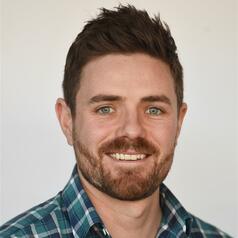
John Arnold
Senior lecturer, Sport & Exercise Biomechanics, University of South Australia
John is a Senior Lecturer in Sport & Exercise Biomechanics. His research focuses on clinical and sports biomechanics for improving health and human performance.
His main streams of research broadly relate to sports and clinical biomechanics for improving health and human performance. He uses different types of measurement, modelling and simulation to understand how forces and motion interact so we can enhance performance and reduce injury. His research is cross-disciplinary, spanning engineering, sport science and medicine.
Less ![]()
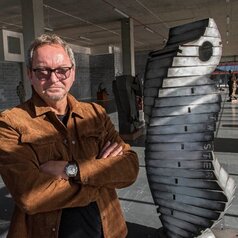
John Atkin
Reader in Fine Art, Loughborough University
Henry Moore OM CH personally funded Atkin throughout his MA sculpture course at the RCA in London. Since then, he has exhibited his work worldwide: e.g., the Guggenheim Museum in Italy, Museum of Modern Art Melbourne and New Orleans Museum of Art - are three such examples of high-profile venues worldwide. Recent publications on Atkins’ public art output focus on references to cultural heritage within urban design.
Atkin has been invited to present keynote papers at a number of conferences worldwide including, 16th China Sculpture Forum. DIAOSU- National Sculpture Magazine of China: Sculpture by the Sea Symposium -Art Gallery of NSW, Sydney, Australia: Understanding the Post-Industrial City: Universidade Técnica de Lisboa Bauhaus – Lisbon, Portugal: International Sculpture Centre Conference, Pittsburgh USA: Curating in Action – Art as Social Practice, China Academy of Art, Hangzhou, China.
Atkin is Reader in Fine Art and Director of Internationalisation at Loughborough University, and has lectured at numerous institutions worldwide, including Boston University: Tsinghua University, Beijing: Virginia Commonwealth University: Kansas City Art Institute: Hartford University, CT.: Sydney College of the Arts: Victoria College Melbourne: The Curtin Institute, Perth.
He is Honorary Fellow, National Academy of Sculpture, Beijing, and Fellow at the Royal Society of Sculptors, London.
John Atkin has developed a substantial body of work over the past 40 years which has been exhibited worldwide in the form of solo and group exhibitions, as well as public art. His research interests have evolved from the use of the found object as a metaphor for human identity into how outcomes from such research can be embedded into the public realm via regeneration projects worldwide.
His early work is characterised by a series of figurative artworks which explore his own identity through the examination of family relationships, principally his father. The resulting artworks, sculpture, installation, tableaux, painting, film, screenplay formed the basis of a series of exhibitions, Juda Rowan Gallery London, Hatton Gallery, Ceolfrith Gallery.
Themes of conflict permeated his output, which led to the development of further works influenced by study visits to, the Imperial War Museum, Wallace Collection, First World War poetry. Outcomes have been exhibited widely, from the Peggy Guggenheim Museum Italy, to Olympic Park Beijing.
His output has straddled the digital-divide, where one half of his career is characterised by traditional making processes, and since 2003 has become an increasing synthesis of digital and traditional methods of making. Drawing has been the central plank of this extensive activity, recognised by significant awards from, the Rootstein Hopkins Foundation, Royal College of Art, and Loughborough University.
Atkin continues to work with Interdisciplinary Design Teams, where the role of art in urban regeneration projects and urban design are key factors in shaping public space. To this end, he collaborates with Architects, Urban Designers, Landscape Architects, City Planners, Highway Engineers, Environmental Designers, Civil & Building Engineers, and other Design groups.
Although his studio is the discreet environment for developing ideas, his work takes place worldwide, often working as an embedded component in fabrication team’s, as well as community groups, where history and heritage are prerequisites of a projects aims and objectives.
Less ![]()
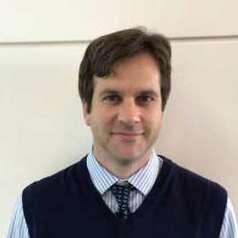
John B. Williamson
The long term goal of my research is to advance our mechanistic understanding of the interacting effects of neurological injury and chronic stress on the brain, particularly as they relate to autonomic functions. Further, we seek to develop strategies and methods to optimize cognitive function and regulate neurophysiological state to ameliorate the effects of chronic stress on negative cascade effects such as in maladaptive aging.
Less ![]()

John Barlow
Lecturer in Applied Geomorphology (Geography), University of Sussex
John Barlow completed his BSc (hons) and MES at Wilfrid Laurier University. His honours and masters theses focused on mass movements along the Niagara Escarpment in Ontario. John received his PhD from the University of Calgary for research into the automated detection of rapid mass movements using digital data. Upon completion of his doctoral research, John did post doctoral work at both the University of Saskatchewan and Durham University. He joined the University of Sussex as Lecturer in Applied Geomorphology in 2011.
Less ![]()
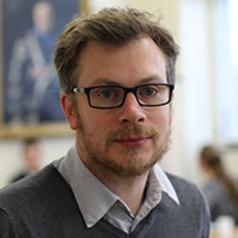
John Barrett
Professor of Energy and Climate Policy, University of Leeds
I joined the Sustainability Research Institute (SRI) in February, 2011 as a Chair in Sustainability Research. My research interests include sustainable consumption and production (SCP) modelling, carbon accounting and exploring the transition to a low carbon pathway. I have an extensive knowledge of the use of Multi-Regional Environmental Input-Output modelling to understand the effectiveness of strategies and policies to deliver a low carbon economy.
My research is predominately funded by the UK Government (Defra) and the UK Energy Research Centre. These key areas of research have involved the building of global trade models to understand the embedded carbon emissions in goods and services and estimating the upstream carbon emissions from emerging energy technologies. The techniques that I developed as part of my research are now used by numerous government departments to understand the consumer emissions of the UK as well as the carbon emissions embedded in products.
Less ![]()
- Market Data





















